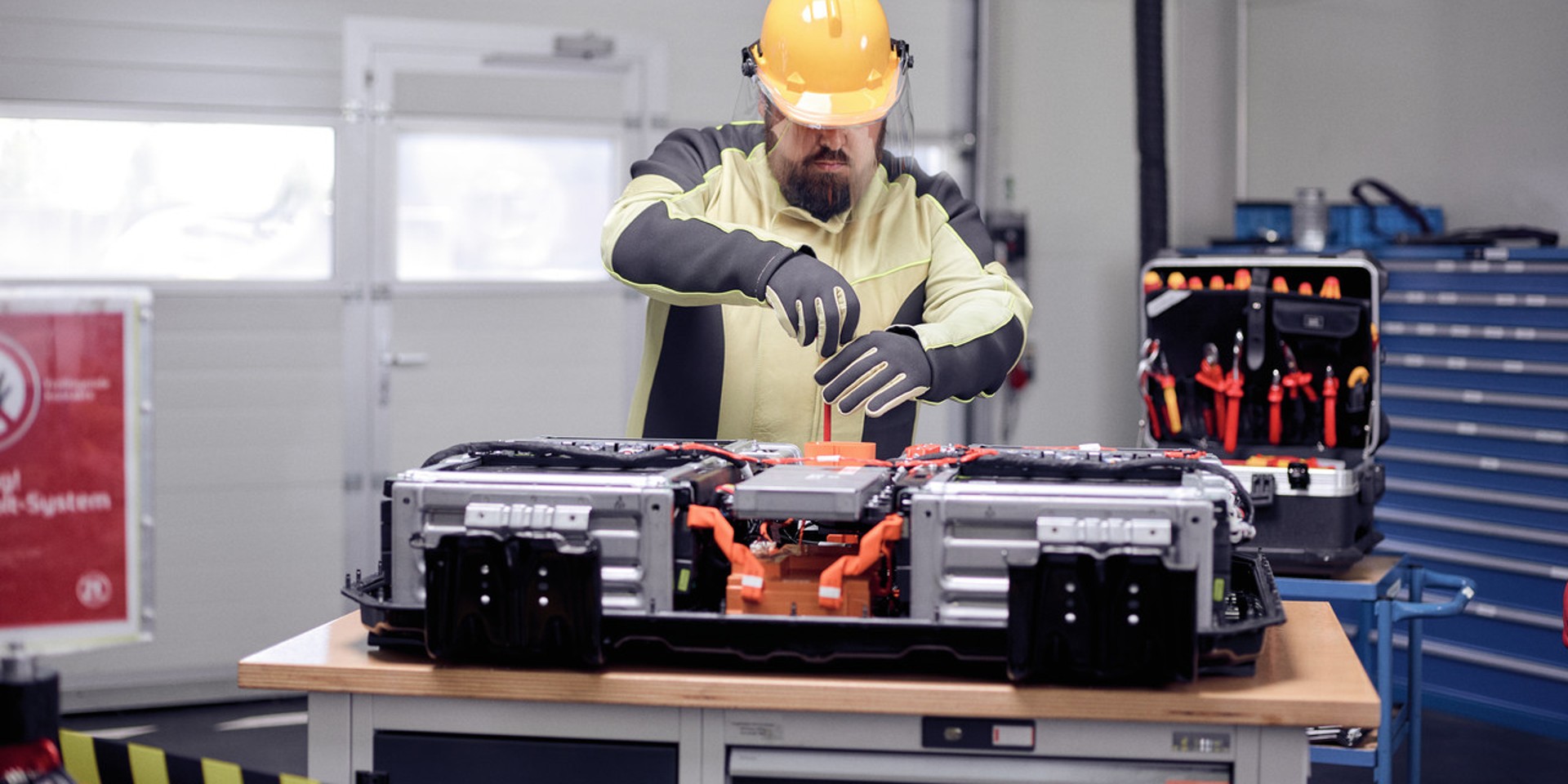
Contributed by Philipp Janczewski
June 23, 2021
3 minutes read
The ZF high voltage experts
Qualifying as a ZF high voltage expert
Qualifying as a ZF high voltage expert is not a difficult path – as long as you have the motivation, willpower and desire to establish your workshop as an expert for hybrid and electric vehicles.
Your qualification pathway depends on your existing training. The flowchart from the DGUV Information 209-093 of the professional association shows you your recommended learning needs. For example, a person with previous knowledge of electrical engineering in the automotive sector must complete 48 teaching units in order to achieve the level 2 qualification.
What needs to be considered? The important documents and levels
DGUV Info 209-093
The DGUV Info 209-093 is a great document for employers and supervisors, because you can see exactly which qualification requirements are necessary for specific work on high voltage vehicles. However, you must bear in mind that this is not a regulation or law – rather, it is designed to help you as an employer make the risk assessment of high voltage vehicles easier and to ensure the safest possible working environment for your employees.
Now let's take a closer look at the different qualification levels – there are three altogether:
- Level 1: Electrotechnical/expertly instructed person
- Level 2: Qualified for work in research and development and on non high voltage intrinsically safe production vehicles and prototypes
- Level 3: Qualified for work on live high voltage components
What the levels mean and what concrete activities you can do with them can best be seen in the following table:
| Level 1 | Level 2 | Level 3 |
|---|---|---|
| Non-electrotechnical tasks | Eletrotechnical tasks on stress-free high voltage systems | Work on live high voltage components |
|
|
|
|
|
|
|
| |
|
| |
|
By the way:
Here at ZF were are defining Level 2, a person "qualified for work in research and development and on non high voltage intrinsically safe production vehicles and prototypes" as ZF high voltage expert. The final step would then be ZF high voltage expert Level 3.
My tip for employers or mechanics – if you intend to maintain, service or provide hybrid, electric or fuel cell vehicles as rental cars, you definitely need training!
A practical example

High voltage vers. oil change
It's no secret that high voltage vehicles pose electrical hazards. Let's take one of my favourite subjects as an example: changing transmission oil.
At first glance, this has nothing directly to do with the high voltage system. However, it is in direct proximity to the high voltage system. For example, the connections for the electric motor in our 8P are located directly next to the oil pan. Also, for other activities such as changing the clutch or working on the chassis, there are special features to consider, so training is necessary… in fact, it is vital.
Because when working with high voltage vehicles the number one rule is: SAFETY FIRST!
Learn more about this topic here:
About the author

Philipp Janczewski
Philipp is Global Head of Training Development, working with ZF Aftermarket since 2013. His motto as #zfexpert:
“You can never have too many horses! No matter in which engine.”









![[pro]Academy [pro]Academy](/media/master/service-images/zfa_pc_training_img_clutch-centering-tool-01_wxh_cmyk_2017-11_un-progressive_bs_32_xl_4.jpeg?v=2326757320)